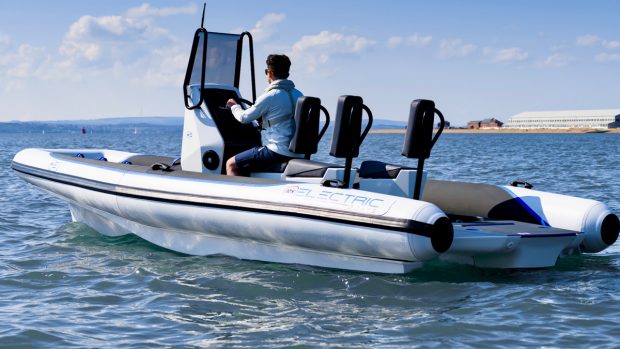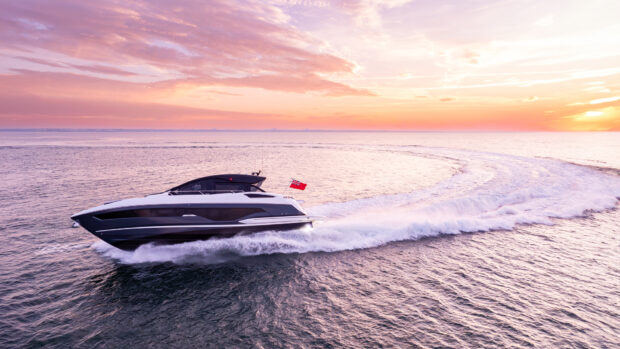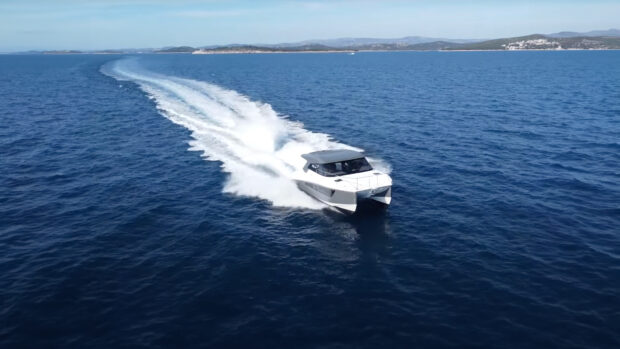Ever had a survey done on a boat? Did you have problems understanding the result? We asked for your comments on surveys and surveyors, and here's what you said:
Ever had a survey done on a boat? Did you have problems understanding the result? We asked for your comments on surveys and surveyors, and here’s what you said:
Dick Malone writes:
What is there to understand in a survey? My experience has been a large amount of money handed over for a document that is not worth the paper it is written on!
To prove the point I wrote my own survey on my current boat, put it on headed paper, included a valuation, sent it to the insurers and they never batted an eyelid. I suppose to be fair I should admit to have been a commercial marine surveyor in the past, but my experience there did not include small boat work. I do, however, know how to write a report.
The most recent boat reports I’ve seen, including my own, contain far too many disclaimers and get out clauses. The one on my previous boat (not written by me!) had about 4 pages of disclaimers before arriving at the body of the text. This effectively renders them invalid for any potential legal claims against the surveyor should he be proved to have made a mistake.
I would suggest that anybody buying a boat is as well to have a thorough inspection themselves and then find dedicated specialists for the structure (boat building) and engines (engineer) who are prepared to stand by their word. I believe that ultimately buying anything secondhand is down to “caveat emptor” and you should trust your own judgement. A thorough check of your “new” boat also means you have a more intimate knowledge of your boat, which is always an advantage should some untoward event happen whilst in use. Whilst this is obviously difficult for new entries into the boat market I believe that some surveyors set a poor example and potentially put off newcomers.
Wilhelm Hartl writes:
I have some comments re surveys.
1) I believe surveys are essential for the non-expert buyer, and certainly not just to be used to complain in order to knock down the asking price.
2) For the novice buyer, reading surveys reports and recommendations can read very “threatening”, until one understands that the surveyor has to point out any shortcoming and in particular anything to do with safety. So it is essential to have an in-depth conversation with the surveyor about his findings and resulting actions, which will provide a good learning experience and often change the impression one gets from just reading the report.
3) A pure structural survey is a requirement but as such did not provide me much information, especially about older boats. Ideally the surveyor should be present at a sea trial, and his report include details of observations, engine noise, smoke, acceleration, instrument readings etc. Very useful for later reference. I also found an (inexpensive) oil analysis of engine and gear box oil helpful. In my case it confirmed confidence in the main engines and brought out the requirement to instantly attend to the gear box oil.
Mike Turner writes:
Our first boat was a Birchwood 25 purchased in 1984. No survey as I felt then it would have been a waste of money.
Since then, Birchwood 29. Princess 30 DS. Aquanaut 1100 and Broom 36, which is our present boat now based in Port Vell,. Barcelona. None of the boats were surveyed, with 23 years of experience of boating behind me and with comments from lots of boaters that we know both in the UK and Spain.
These so-called experts, after scraping patches and knocking here and there, “osmosis quite bad in places” (never known a boat to sink from osmosis) you will need to antifoul as soon as possible. Rubbing strake is damaged. and then probably 10 details which are mostly cosmetic.
If the experts did pressure tests on water and gas. had a sensor for gas tests in lower bilges, run the engine/s and checked for carbon monoxide emissions and to include tests on diesel heaters then a survey would be useful.
Mike Wharton writes:
On surveys, we had to have our vintage motor boat Kalo re-surveyed in 2005. This was at the insistence the insurance company, it being over seven years since the last one. This created a problem as we were cruising in France at the time and did not want to bear the cost of an English surveyor travelling to France. However we got the insurance company to agree to the owner of the boatyard at Sens, about 60miles south east of Paris, surveying our vessel in spite of the fact that the chap Simon Evans was not a registered surveyor.
Simon was in fact better than a surveyor in this case because he was a wooden boat owner himself and a trained shipwright who had learned his skill with wooden boats. The insurance company was very satisfied with his easy-to-understand but slightly unconventional approach. He was able to re-assure them that we were looking after the vessel and that she was still in an excellent seaworthy condition. It was also re-assuring for us to know that we were getting it right, he also gave some useful tips for future maintenance.
The survey represented excellent value for money but I did think that the lift out charges were steep-I told him later that I thought we had bought the crane.
Richard Worrall writes:
We have bought all of our boats bar one as new via the Sealine dealer network. Our last Ida May a Sealine T47 was purchased second hand through a broker. The boat was just under four years old when we bought her so, although no external finance was required, we thought it best to have a survey done. This was carried out by Paul Homer (well known to MBM I think!) and cost approximately £500.
It did not reveal much that hadn’t already been pointed out by the vendor through the broker but did enable us to negotiate some rectifications prior to purchase. The largest of these was the replacement of the Halon fire extinguishing system with FM 200. We found the survey comprehensive and quite readable. We would certainly have a survey done if similar situations arise in future.
Brian Elliott writes:
I had a survey on my boat when I bought it. The surveyor was recommended by the brokers. He did a lousy job, missing obvious osmosis and lots of other things; I had a second survey which was the basis of my case when I sued the 1st surveyor. He was not a member of any professional association, had no professional insurance and was not qualified, nevertheless I won.
The second survey was excellent easy to read and understand. My advice is to get the best possible surveyor and establish not only his credentials but the price beforehand. (I have shortened this tale but it was very tiresome and worrying.)
Brett writes:
If you are a reasonably competent owner and have reasonable knowledge of boats, GRP, electronics etc, in my opinion if the boat is less than five years old, it’s only worth getting engines checked by professional and check all electronics and general services yourself.
The first vessel I bought I paid to have surveyed and all the areas that were likely to be troublesome the surveyor couldn’t see or get to, so he put a caveat at the end of his survey to cover himself!
Mike Thomas writes:
I have bought 10 boats over 20 years of boating, all second hand and all have been surveyed.
I always use the same surveyor if at all possible and if not I use a recommendation from him. This is not because he is necessarily a wonderful surveyor but he does know the sort of things in which I am primarily interested. I don’t want to know the minutiae like light bulbs not working and scratches in the hull and that the superstructure is dull – I can see that for myself. I do want to know if it is riddled with osmosis or the bulkheads are delaminating in the bilge or there is cracking in the hull, underwater.
Generally, the report is so couched in opt outs that I have always been much more interested in a verbal report from the survey site than the pretty report that follows. If things do go pear-shaped, odds are that you can’t touch him anyway.
Andrew Fanner writes:
From my own experience make very certain that your surveyor is happy for you to be present when the survey takes place and will answer questions both at the time and afterwards, including when you have the formal report. This is especially useful if you plan to do major work on the boat, such as a change of engine, as the surveyor will be able to give useful comment on needs to strengthen engine bearers or move engine bay fitments.










